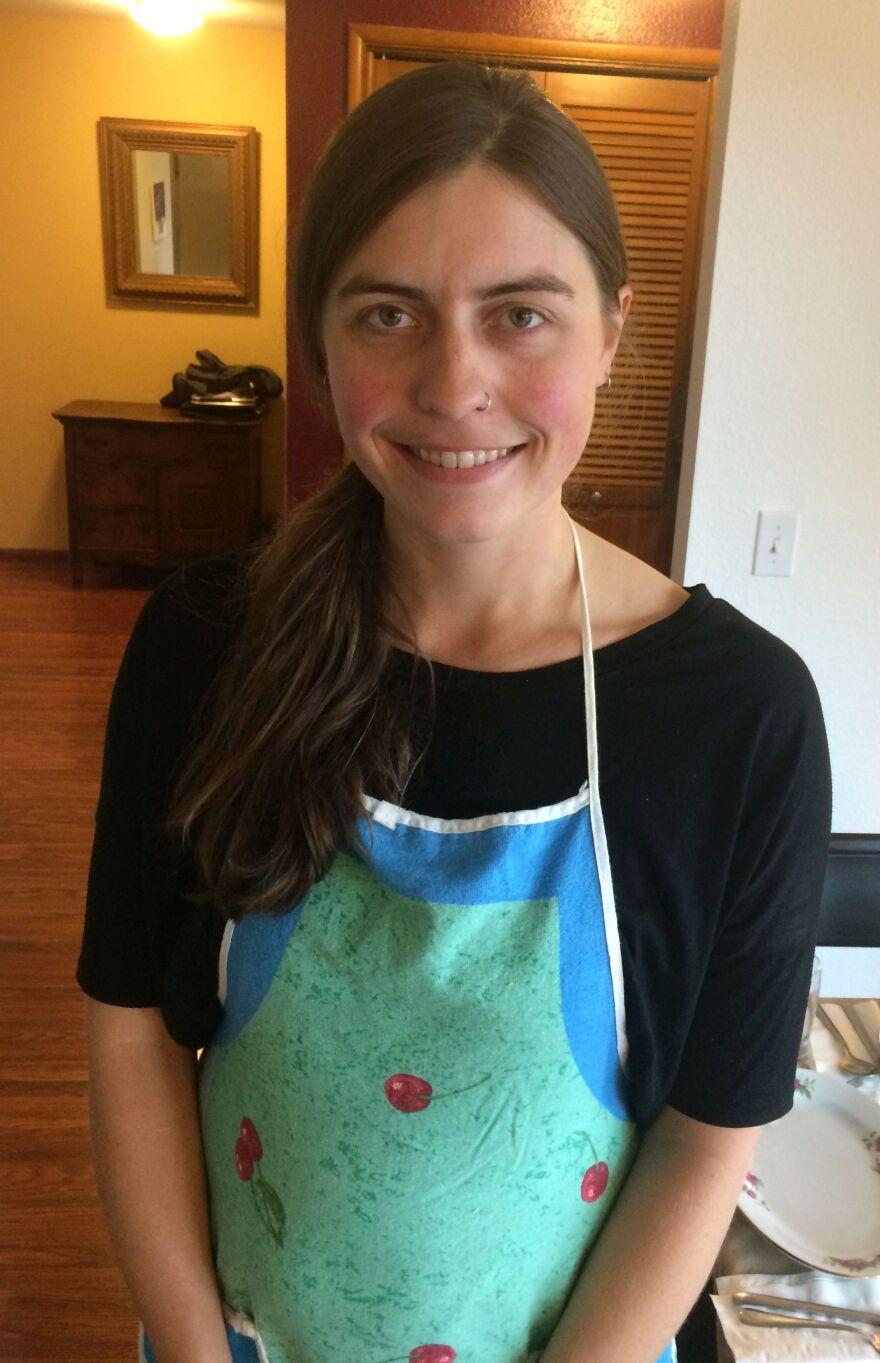Carnivores, take note…a new group in Eugene wants to change the way you think about and use meat. They want consumers to bypass grocery stores and make tracks to the farm…and perhaps even learn how to butcher their own animal. KLCC’s Brian Bull profiles the Eugene Meat Collective.
Many consumers are curious to learn just where their food comes from. This was spoofed early on in the Portlandia TV series. Here, a waitress shares the life history of a chicken to a concerned couple.

Waitress: “His name was Colin. Here are his papers, okay?"
Man: “S’great, he looks like a happy little guy, runs around…a lot of friends, other chickens as friends? Putting his little wing around another one and kinda like palling around? ”
Waitress: "I don’t know I can speak to that level of intimate knowledge about him…”
Jonathan Tepperman wants people to have a more intimate knowledge of their food too – at a somewhat different level.

“Food is a very intimate thing. We end up sharing the same DNA and molecules.”
Tepperman hosts a number of seminars through the Eugene Meat Collective. Since he founded it in 2016, he’s organized over a dozen classes touching on butchering deer to clamming to sausage making.
Guest chef Mikey Lawrence sizzles sausage in a cast-iron skillet. He says the group’s philosophy is to connect people to the meat they consume, for a better sense of where their food comes from and how they can re-engage themselves with it.
“Pork chops have heads. Pork chops have feet. The things we get in the store, it does blur the lines between what is real food and what is just what we’ve grown accustomed to, and Americans have since the 1950s, when it all changed and everything became tinned and Saran-wrapped," says Lawrence.
"It just shows people you can make something start to finish from a hog, from a farm, 10 miles away.”
The first meat collective was founded by a Eugene native, Camas Davis, in Portland nine years ago. She says there are currently five meat collectives in the U.S., with a couple dozen other communities exploring the idea.

Tepperman says Davis encouraged him to start the one here in the Emerald City. He acknowledges not everyone is up for slaughtering and processing their own animal…but his group tries to meet people where they’re at in terms of comfort level.

“Part of that comes from the Disneyification of wildlife," Tepperman tells KLCC. "Fundamentally all food that we have is death. Everything that comes into our body has died, in order for us to eat it. We are trying relearn something that is innately human to us.”
And Tepperman says compared to industrialized, commercial meats, local, farm-raised animals are less apt to have growth hormones and anti-biotics.
At this workshop in Tepperman’s home, a dozen people are slicing up and grinding their own pork for sausages. Among them is Katherine Vinje of Creswell.
“I’ve a teenage daughter that has become very aware of how meat is processed," she says. "Typically that you buy in grocery store. She’s very disturbed by it and has decided to go vegetarian unless we're able to get a hold of meat that’s been humanely raised, humanely killed.”
Another participant is Shelley Bowerman. She’s with Moondog's Farm in Mohawk Valley.
“Basically I’m ruined on supermarket meat. It’s almost down to a level of faith," Bowerman says.

"Y’know, like I trust that if I grow my own food or know where my food comes from, my life is going to be better.”
The North American Meat Institute contests the collective’s criticism of the commercial meat industry. A spokeswoman says while it’s great to know more about where one’s food comes from, it’s best that people have their meat processed in a facility overseen by federal inspectors.
The NAMI adds that if antibiotics are used, it’s done so judiciously with the animal “withdrawn” for a period before slaughter.
It’s a debate unlikely to end. Tepperman says he’d like to get pastured local meat into every grocery chain, and let consumers see what’s possible.
“Our goal at the Eugene Meat collective is to show them a different way and then give them the skills to implement that, so they can remove themselves from a system that they already feel uncomfortable being in.”
At the end of the sausage-making workshop at Tepperman’s home, everyone gathers around for a freshly-made communal meal. They share what they’ve learned as well as what they’ve created.

“Just melts right in your mouth, there’s no grainy texture on it at all. Just a really nice, flavorful sausage!”
Melanie Huskey-Griffin of Fern’s Edge Goat Dairy in Lowell says she got this workshop as a Christmas gift from her hubby.
“This came up on my Facebook feed, and I looked at my husband and I was like “this would be the perfect Christmas gift for me! And he was like, “Okay, sign up! So yeah, it’s just…I love food meat, cheese, charcuteries, I’m a cheese monger. This is kind of my element!”

Tepperman says the Eugene Meat Collective is exploring hunting courses for members.
“I mean, there’s nothing more free range and organic that an animal that lived in its native habitat, free and enjoying the food from its native habitat, and then it has one bad day.”
That means featuring food that goes from field to table, instead of just farm to table…further expanding the way meat collective members acquire their protein.
Copyright 2018, KLCC.







